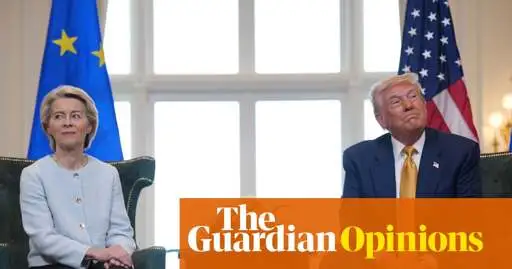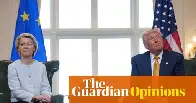I think this is a large component. I think the other is that the calculus on this from a trade perspective is that 15% is better than 50%, and there is a good chance Trump imposes 50% tariffs if no deal is achieved. This would be bad for everyone. In four years, Trump will be gone, and the tariffs will go away again. Of course this sets the precedent that future leaders of the U.S., China, and any other large trading blocks, could unilaterally impose tariffs, and the EU will just roll over. This is why temporary pain is often a better response than acquiescence. I think this is one of the failings of the EU as a governance model. It moves slowly and requires near total agreement. This limits negotiation options because at least one nation would oppose the short term pain scenario.


